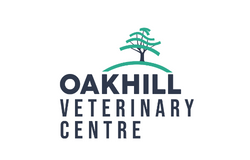IMPACTION COLIC
Impaction colic is a relatively common medical colic we diagnose during winter months. However, we can see cases throughout the year. Clinical signs consistent with an impaction include signs of colic, reduced gut sounds and reduced droppings. An impaction is confirmed on rectal examination by your vet.
The horses intestinal system, although very large, is not capable of coping with sudden changes to the diet. Alterations in feed type, quantity and hydration can all lead to signs of colic.
Poor weather conditions necessitating stabling are a common reason for impaction development, as horses are fed an increased amount of dry forage compared to the usual grass-based diet. In addition reduced movement will slow gut transit times. Freezing conditions also contribute to impaction development due to reduced water intake as a result of the water source being frozen or the water being cold and unappealing to drink. This leads to the ingesta within the gastrointestinal tract becoming dehydrated with resulting signs of colic and impaction development.
Prevention
- Add warm water to your horse’s water buckets when temperatures drop. This will encourage water intake and keep your horse’s colonic contents hydrated.
- Add warm water to bucket feeds.
- Supplement a second bucket of water with electrolytes or add salt to your horse’s feed – this will stimulate thirst and water intake. Ensure your horse is also offered plain water.
- Manage forage intake. Sudden changes in management are sometimes unavoidable. Feeding forage little and often is helpful in preventing impactions. Soaking forage can also be beneficial but remember not to do this if temperatures are below freezing!
- Maintain a level of exercise if possible and safe to do so. This can be difficult during freezing temperatures but movement, even turnout, will help to keep your horse’s guts moving and therefore reduce the risk of impaction colic.
- Regular dentistry is crucial year-round, but especially during winter months as an inability to properly chew hay could result in impaction colic due to an increased quantity of long fibre reaching the colon. All horses should receive at least one dental check per annum. It is often worth an additional pre-winter check in older horses and ponies.
